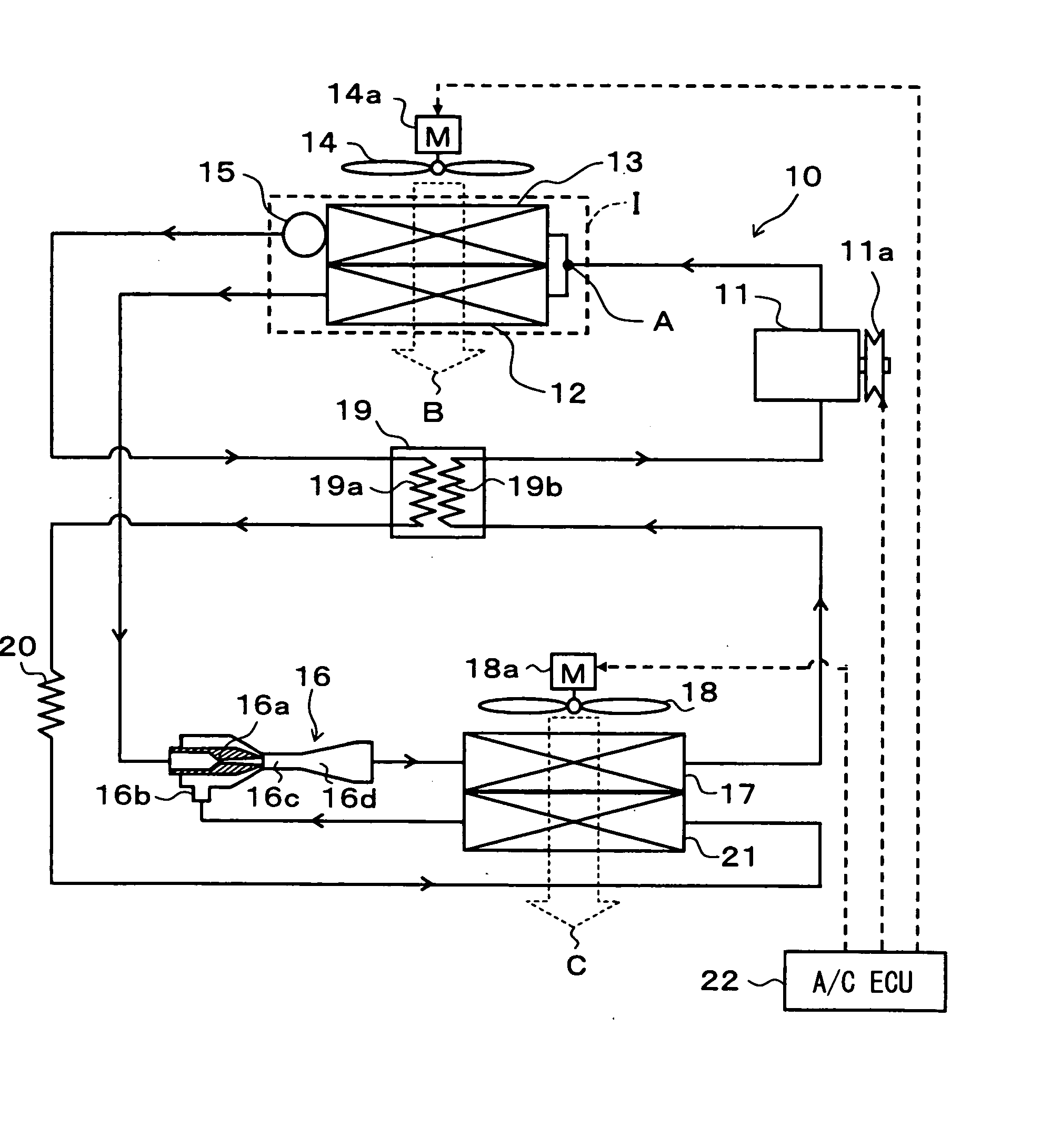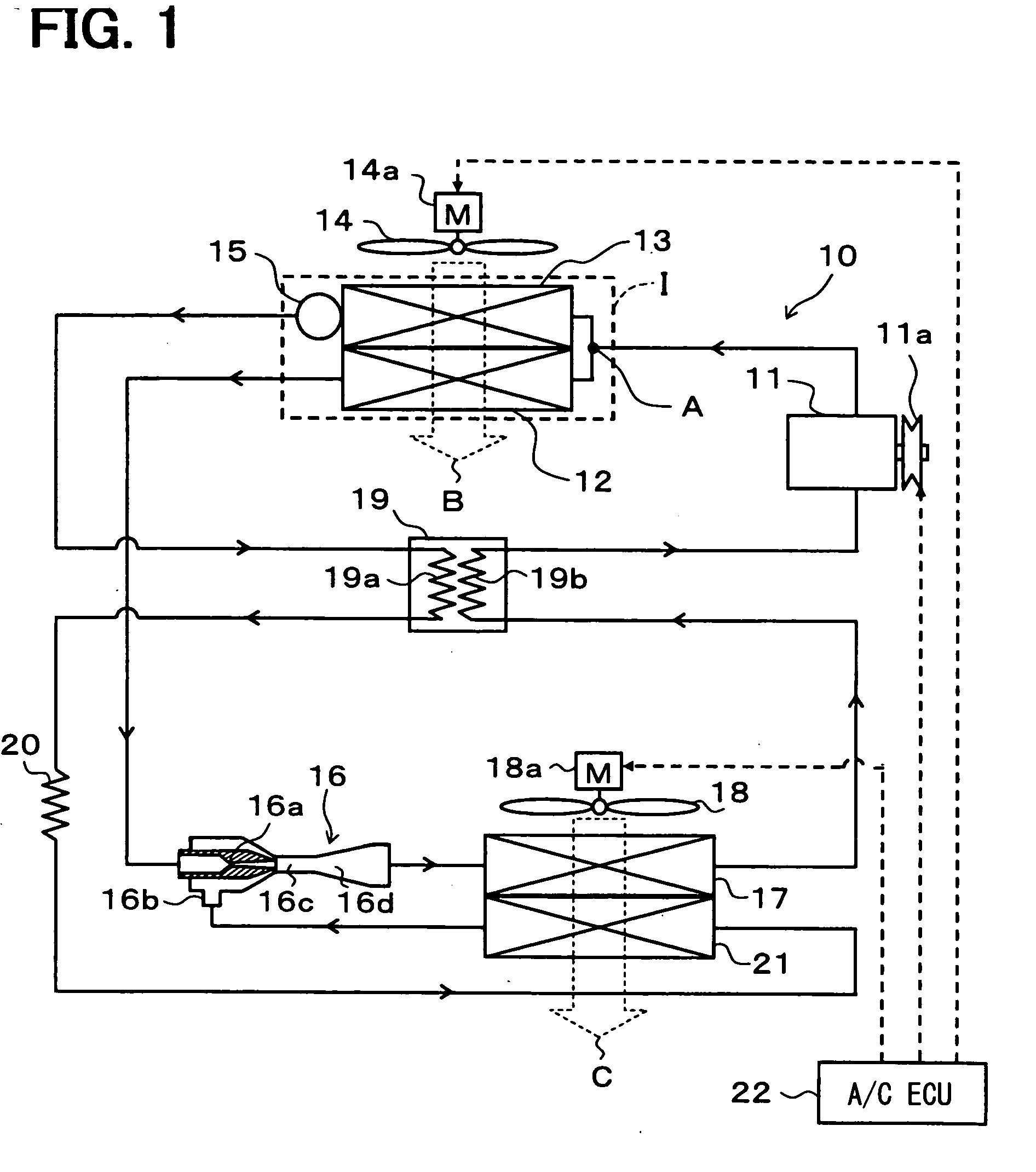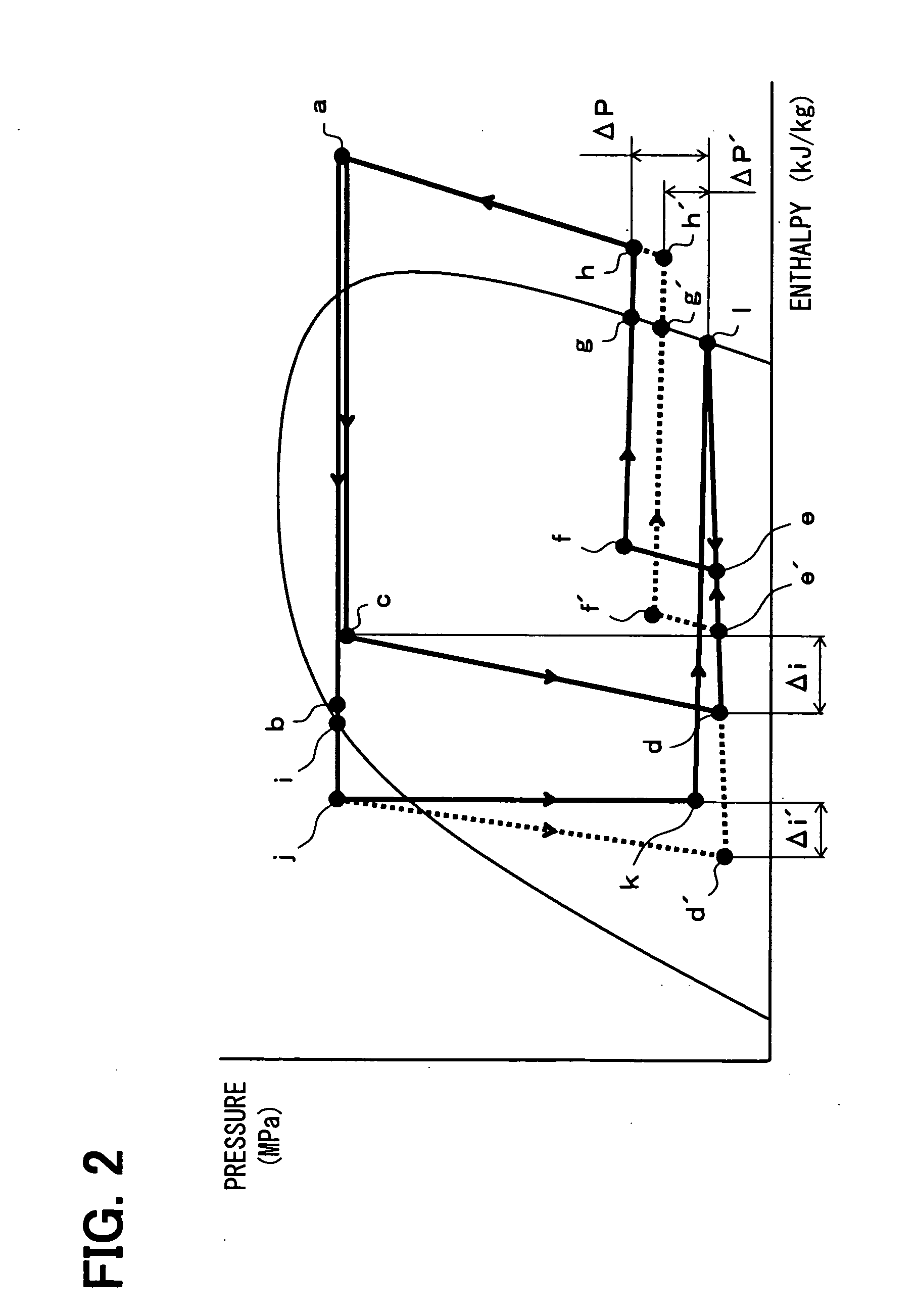Refrigerant cycle device with ejector
a refrigerant cycle and ejector technology, which is applied in the direction of manufacturing tools, lighting and heating equipment, furniture, etc., can solve the problems of inability to enhance the effect of cycle efficiency improvement, and achieve the effects of reducing manufacturing costs, increasing refrigeration capacity of cycles, and small dryness
- Summary
- Abstract
- Description
- Claims
- Application Information
AI Technical Summary
Benefits of technology
Problems solved by technology
Method used
Image
Examples
first embodiment
[0029] A first embodiment of the invention will be described below with reference to FIGS. 1 to 3. FIG. 1 is a diagram showing an example of an entire structure of a refrigerant cycle device 10 according to the invention, which is applied to an air conditioner for a vehicle. In the refrigerant cycle device 10 of this embodiment, a compressor 11 for sucking and compressing the refrigerant is rotatably driven by an engine for vehicle running (not shown) via an electromagnetic clutch 11a, a belt, and the like.
[0030] The compressor 11 may be either a variable displacement compressor for being capable of adjusting a refrigerant discharge capacity by a change in discharge capacity. Alternatively, the compressor 11 may be a fixed displacement compressor for adjusting a refrigerant discharge capacity by changing an operating efficiency of a compressor operation by intermittent connection of the electromagnetic clutch 11a. The use of an electric compressor as the compressor 11 can adjust th...
second embodiment
[0090] In the above first embodiment, the receiver 15 is disposed on the downstream side of the second radiator 14. However, in a second embodiment, as shown in FIG. 4, the receiver 15 is removed, and an accumulator 23 is disposed on the downstream side of the outflow-side evaporator 17. The accumulator 23 is a vapor / liquid separator for separating the low-pressure refrigerant on the downstream side of the outflow-side evaporator 17 into the vapor-phase refrigerant and liquid-phase refrigerant to store therein the liquid-phase refrigerant.
[0091] The accumulator 23 has a tank-like shape, and is adapted to separate the refrigerant into the liquid and vapor phases by a difference in density between these phases. The accumulator 23 allows the vapor-phase refrigerant from a vapor-phase refrigerant outlet provided in an upper portion thereof to flow into the suction side of the compressor 11, and the liquid-phase refrigerant from a liquid-phase refrigerant outlet provided at the bottom t...
third embodiment
[0104]FIG. 6 is a diagram of an entire structure of a refrigerant cycle device according to a third embodiment of the invention. The third embodiment differs from the first embodiment in that the outflow-side evaporator 17 is not provided. The structures of other elements of this embodiment are the same as those of the first embodiment.
[0105] Also in the refrigerant cycle of the third embodiment, the branch portion A is disposed on the upstream side of the first radiator 12 and the second radiator 13, so that the amount of heat radiated from the refrigerant in the first radiator 12 is smaller than that in the second radiator 13. Thus, the refrigerant cycle of this embodiment can increase the enthalpy of refrigerant on the inlet side of the nozzle portion 16a as compared to the refrigerant cycle of the comparison example in which the branch portion A is disposed on the downstream side of the second radiator 13 and on the upstream side of the nozzle portion 16a.
[0106] As a result, l...
PUM
| Property | Measurement | Unit |
|---|---|---|
| Area | aaaaa | aaaaa |
| Heat | aaaaa | aaaaa |
Abstract
Description
Claims
Application Information
 Login to View More
Login to View More - R&D
- Intellectual Property
- Life Sciences
- Materials
- Tech Scout
- Unparalleled Data Quality
- Higher Quality Content
- 60% Fewer Hallucinations
Browse by: Latest US Patents, China's latest patents, Technical Efficacy Thesaurus, Application Domain, Technology Topic, Popular Technical Reports.
© 2025 PatSnap. All rights reserved.Legal|Privacy policy|Modern Slavery Act Transparency Statement|Sitemap|About US| Contact US: help@patsnap.com



